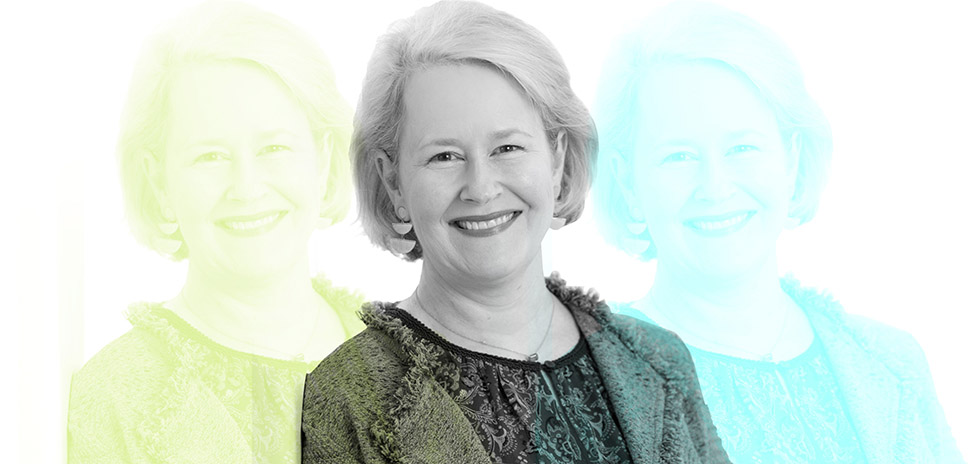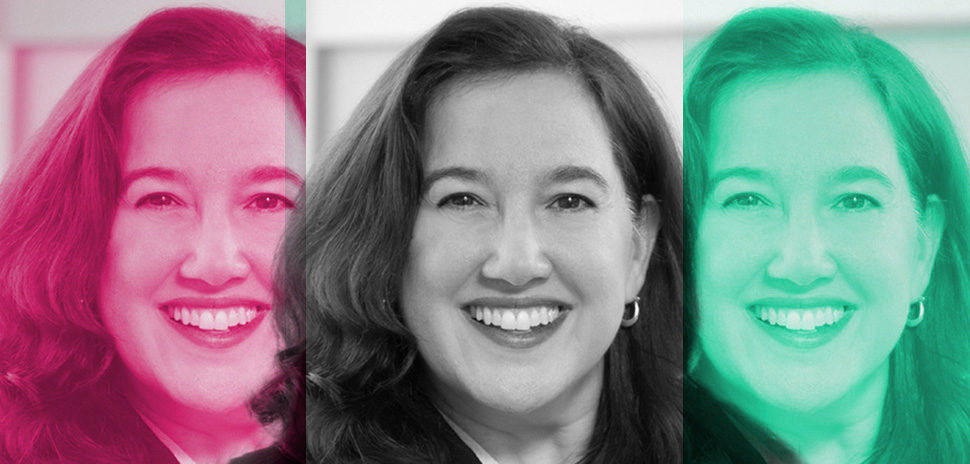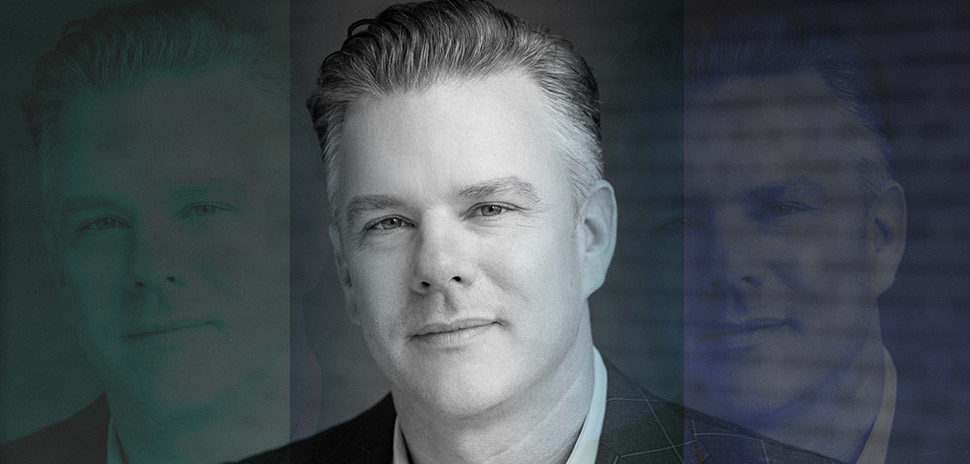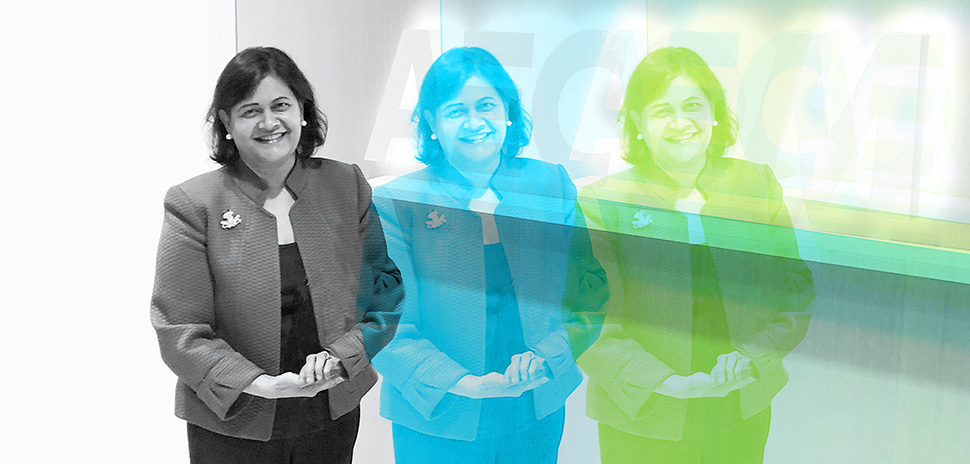With an entrepreneurial mindset, Claire Aldridge helps move discoveries from the lab to the real world. Aldridge, who is a self-described “lifelong science geek,” says she gets to collaborate with some of the best minds in the business every day.
INVENTION/EDUCATION
Biotech Booster
Claire Aldridge
Aldridge, who is AVP of Commercialization and Business Development at UT Southwestern, has also doubled down on efforts to make Dallas a biotech hub.
Case in point: Her group helped launch Taysha Gene Therapies, a patient-centric gene therapy company that aims to end severe and life-threatening diseases of the central nervous system caused by variation in a single gene, also known as monogenic CNS diseases. Today, that strategic partnership is still flourishing. Taysha and UTSW recently announced a joint innovation fund to advance new genetic therapies.
And that knowledge has become especially critical in a COVID-19 world.
Since the pandemic hit, Aldridge, who holds a doctoral degree from Duke University in immunology and genetics, has helped highlight UTSW research on the effectiveness of drugs like antibody plasma, remdesivir, and the anti-IL-6 inhibitors. Amidst a sea of national clinical trials, the team has become very much involved in the hard work of developing potential therapeutics related to COVID-19.
That includes being an advisor to local public health authorities about the evolution and future spread of the disease. Aldridge and her team have been there since day one.
That battle with COVID-19 became personal for the scientist in April. Aldridge herself battled the virus and shares her story in an essay. The novel coronavirus turned Aldridge’s “world—the entire world—upside down,” she writes.
As soon as she was able, the UTSW leader donated plasma and antibodies to help others in their fight. “There’s a reason they call it “liquid gold,” she says.
Aldridge and the UTSW researchers also lead the DFW Prevalence Study, “which is seeking to identify why certain populations and communities are harder hit.” Next up, the UTSW Office for Technology Development, which includes Aldridge’s team, will relocate to Pegasus Park to encourage collaboration among scientists, businesses, and nonprofits. Aldridge, who also serves as a scientific advisor for Pegasus’ Biotech Hub, says the move will increase the likelihood of meaningful collisions that spark reactions.
Dallas’ burgeoning biotech hub
Aldridge calls Pegasus Park a “defining moment for the growth of healthcare innovation and commercialization in North Texas.” The mixed-use social purpose project from Lyda Hill Philanthropies and J. Small Investments is meant to accelerate local life science and healthcare discoveries and boost nonprofit resiliency. Situated on 23 acres near the Dallas Design District and the Southwestern Medical District, the campus boasts a high-rise office tower, state-of-the-art facilities and amenities, and an innovative design.
But the park’s main four components are a biotech+ hub, a nonprofit hub, commercial tenants, and entertainment/dining venues. The eventual goal is to make Pegasus the go-to place for early-stage, life sciences companies to develop into high-growth ventures.
“Pegasus Park will be not just a place but also a spirit,” Aldridge says. “By bringing into close proximity with each other entrepreneurs, non-profits, scientists, investors, and lab space, we will increase the likelihood of meaningful collisions that spark reactions.”
STEM Star
Aldridge most recently made a cameo on “Mission Unstoppable,” a CBS show hosted by “iCarly” star Miranda Cosgrove. Aldridge planned to discuss embracing the role of mentor for young women entering a career in science, her early bout with COVID-19 (she was infected in March), and touch on the importance of convalescent plasma in treating the disease before the vaccine came along.
Meet the biotech booster
Aldridge was featured in Dallas Innovates’ Future 50 in Dallas-Fort Worth in the 2021 edition of our annual magazine. We talked with her about how UTSW has responded to the challenges of COVID-19, how the organization encourages collaboration between academia and industry, and how Dallas can become a biotech hub.
On bridging the gap between faculty and potential commercial partners:
Earlier this year, our team led a series of transitions to streamline efficiencies and provide a better experience for our primary customers—UT Southwestern faculty. We created new roles to function as primary points of contact and directly interact with faculty and researchers to ensure timely and customer focused communication and collaboration.
Also, through an expanded business development capacity we are establishing closer relationships with potential commercial partners and keeping them engaged and aware of our pipeline of innovations. That team is also leading an effort to spark the entrepreneurial mindset in our faculty to help them think about the potential applications for this scientific discovery.
On how her organization has responded to challenges of COVID-19 within minority and underserved communities:
UTSW is working to educate, research, and prevent the spread of COVID among the tremendously diverse communities in our region, including leading the DFW Prevalence Study, which is seeking to identify why certain populations and communities are harder hit, and research presented at the AHA earlier this year identified cardiovascular, obesity, and age factors that have greater impact in black and Hispanic communities. In addition, UTSW has worked to provide safety messaging on masking in more than a dozen languages.
On supporting teamwork in challenging times:
This has been a tough year for all of us, but certainly many of our co-workers have been harder hit by the effects of this awful disease. Our team within the Office for Technology Development understands the important role we play in enabling and advancing potentially life-saving innovations. I believe this driving mission has supported our continued resilience in the face of so many challenges.
Foremost, we work hard to stay connected with each other and virtual meetings are a blessing in that respect. I also see it as my responsibility to ensure my team unplugs and takes a break from our jobs to attend to the other important aspects in our lives. Last, but perhaps most importantly, we are continually doing mental health check-ins with ourselves and others. We have established a culture of “open and honest communication,” as a core virtue and we work hard to ensure all voices are heard.
Alex Edwards contributed to this report. The Q&A has been edited for brevity and clarity. A version of this story was originally published in Dallas Innovates 2021: The Resilience Issue.
Read it online
Our fourth annual magazine, Dallas Innovates 2021: The Resilience Issue, highlights Dallas-Fort Worth as a hub for innovation. The collective strength of the innovation ecosystem and intellectual capital in Dallas-Fort Worth is a force to be reckoned with.
![]()
Get on the list.
Dallas Innovates, every day.
Sign up to keep your eye on what’s new and next in Dallas-Fort Worth, every day.






























